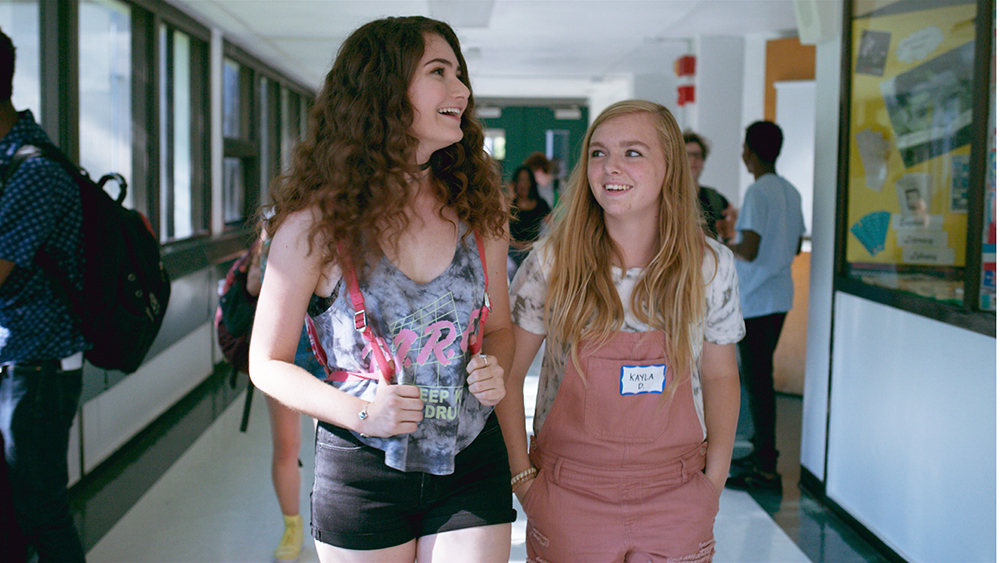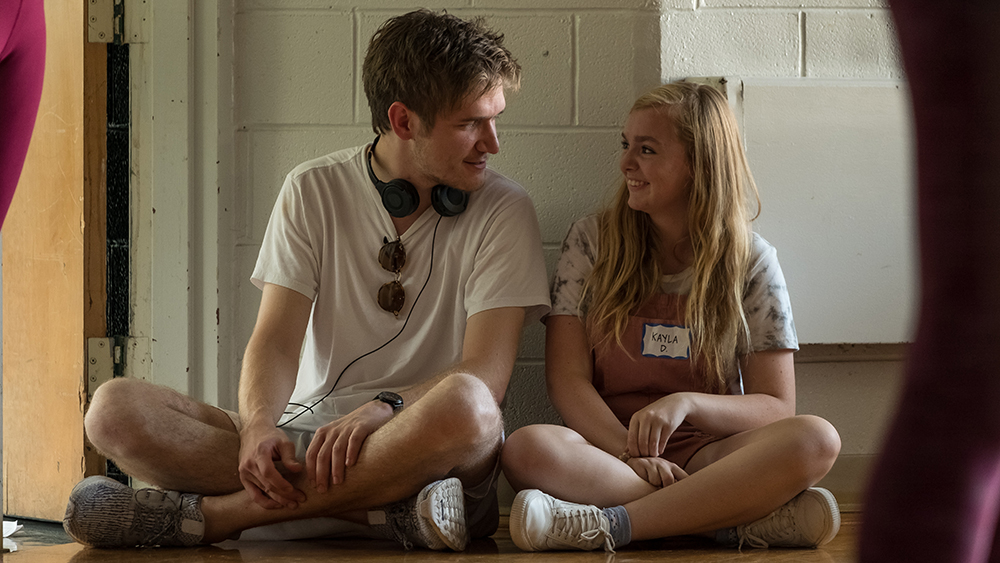Bo Burnham Wishes ‘Eighth Grade’ Wasn’t Rated R
By Rebecca Rubin
LOS ANGELES (Variety.com) – It’s not lost on Bo Burnham that, technically, middle schoolers aren’t able to see “Eighth Grade,” his coming-of-age drama that captures what it’s like to be a teenager in the digital age.
“I didn’t want to make it R-rated,” Burnham told Variety. “I just wanted to portray the way kids’ lives are. It didn’t feel like our responsibility to portray the reality that we felt was appropriate for kids.”
“,” which opens nationwide on Friday, follows Kayla (Elsie Fisher) as she navigates her last year of middle school. She has to deal with puberty, cliques, and anxiety that define teenage years — but with the added pressure that comes with her generation’s obsession with documenting their lives on social media.
The movie can be cringe-worthy, for sure, but it’s not raunchy in the slightest. The reason for the R rating? A few f-bombs, a scene with unwanted sexual advances, and an instance involving innocent YouTube research on how to give oral sex.
“I would love kids to be living in a PG-13 world,” he said. “They just aren’t.”
He adds, “Hopefully it encourages parents to bring their kids, but I promise it’s exposing kids to nothing they aren’t already aware of.”
Here, Burnham talks with Variety about how he captured the perspective of eighth graders, what it’s like for kids to grow up in the age of social media, and why John Hughes films no longer encompass teenagers today.
Why did you want to write about this particular generation?
I’m technically probably out of it, but I do feel a part of it. I have a relationship with the internet. I grew up with it. Not to the extent they did, but all of my young adult life was involved in it. I was trying to portray it and do it justice on my own behalf more than anything else. It wasn’t anthropological, it was personal.
Was there something specific that inspired the story in “Eighth Grade”?
It was just trying to write about this thing in a million different ways and seeing it through the eyes of a 13-year-old felt like the best, most pure version of what we were trying to talk about. Kids experience the internet in a very pure way — they don’t have taxes or rent or anything else to worry about. It’s so much of what they have to deal with.
It really was just watching videos of kids online and being so fascinated by the way they had to present themselves and take inventory of themselves and interpret themselves out loud. Really watching those videos, thinking, if this were a performance in a movie, it would be incredible.
YouTube was a good resource to capture the perspective of Kayla and other middle schoolers, but the movie depicts her dad’s viewpoint in a really honest way. How did you approach that?
Really the research was just being the child of a parent. It’s funny that it’s specific to a father and daughter because it’s more based off the relationship between me and my mother. The research really just was being a teenager — and watching my sister and my dad, too. I have two siblings and two parents in the house, so I had a lot to observe for a while. And I was the youngest, so I got to see a lot of it.
Elsie seems to deliver the dialogue very naturally, using a lot of “likes” and “ums” and “you knows?” What direction did you give her?
I just wanted to give the kids permission to be inarticulate, to be spontaneous. It wasn’t improvised, but it didn’t have to be word-perfect. We were trying to approximate normal speech and not trying to overwrite things or over think things or over-rehearse things. It was really just giving kids permission to fail more than anything. A movie’s dialogue usually comes from trying to over-deliver what they think a kid should sound like in a movie.
Most teen movies feature girls with perfect skin. Did you have any conversations with Elsie about showing her natural skin on camera?
To me, it’s so much more messed up to go to a teen and say, “You have to cover everything about you because you’re not worthy of being on camera. You can’t possibly show your natural skin on camera because that’s horrifying.” It was never a question, and Elsie was desperate to see people in movies that had not-perfect skin. She was really bummed out about not seeing someone like her on camera. She was excited to do it. We were trying to show the truth, and there is nothing scary or weird about the truth, at least in this sense. All of the culture needs to do a better job of reflecting actual reality in so many ways.
The wardrobe is reminiscent of such a specific time. There’s one scene where a group of girls are wearing Hollister graphic tees, and later, someone is wearing a vintage D.A.R.E. shirt.
What decisions went into their clothing?
Definitely a Hollister shirt with the big, chunky lettering — that’s all I wore growing up and all the girls I knew wore growing up, so I needed that in for my own sake. The D.A.R.E. shirt showed that the old programs from when I was growing up are now ironic t-shirts, which is interesting. At that age, clothing is as much as it is an expression of yourself, it is also a performance of yourself.
A lot of teen coming-of-age movies focus on bullying, but “Eighth Grade” is more about the way we judge ourselves. Why did you want to portray that story?
I don’t think that’s what’s really happening now. I know there is bullying, but I think it’s much less swirlies and getting your head shoved in lockers than there is just being ignored and being in your own head. The old, ‘80s John Hughes stories was about cliques and bullying and interpersonal space at school. Now, it’s much more inner-personal space. I really do think the drama of most kids’ lives now is playing out inside their head.
Was there any specific scene you were particularly proud of?
I like the karaoke scene. I’m happy with the whole thing, but that one in particular means a lot to me for some weird reason. It does what I wanted the movie to do, which is take a very small, stupid moment and make it feel very significant, I hope.
The YouTube videos you got your start with and became known for were more satirical and biting . Were you nervous at all to go in the opposite direction and make something that feels a little more genuine?
I was so tired of the satirical stuff, I was desperate to do something else. This movie feels more like me than that other stuff. The other stuff felt like something I had to do in order to justify being up there or something. I was worried about continuing to have to do the other thing, that was more my fear than this, for sure.
And now Kayla is navigating the medium where you got your start, but she doesn’t have the same following.
We tend to only talk about the people on the internet who get seen and who have a following. The truth is, the majority of people are not being seen and are expressing themselves to an audience smaller than what they would like. I was interested in trying to tell their story rather than the story we hear all the time.
Reception for the movie has been very positive, but has there been any feedback that surprised you?
It’s been good that people who aren’t just eighth graders or parents of eighth graders are resonating with it. I’m neither of those things, and I resonate with it. To see types of people you wouldn’t expect — like 30-year-old dudes with no children — to see the film from Kayla and feel her. That’s been really, really nice.


